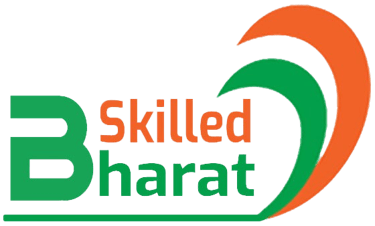Project Planning
What is project planning, software, cost, benefits
GENERAL
4/20/20256 min read


Exploring Project Management Planning Software: Budgeting, Costing, Training Fees, and Benefits
Project management planning software is a game-changer for delivering projects on time, within budget, and to the desired quality. These tools streamline scheduling, resource allocation, budgeting, and cost tracking, enabling teams to manage complex projects efficiently. This blog explores popular planning software, their budgeting and costing features, training fee structures in USD and INR (₹), and the benefits for students and young professionals.
What is Project Management Planning Software?
Project management planning software helps project managers and teams create, monitor, and execute project plans. These tools offer features for task scheduling, resource management, budgeting, cost tracking, and progress reporting. By centralizing data and automating processes, planning software reduces errors, enhances collaboration, and supports data-driven decisions.
Popular Project Management Planning Software
Below are widely used planning software tools, with a focus on their budgeting and costing capabilities:
1. Primavera P6 by Oracle
Overview: An industry-standard tool for managing large-scale, complex projects in construction, engineering, and energy, known for robust scheduling and resource management.
Budgeting and Costing Features:
Create detailed budgets using Work Breakdown Structures (WBS).
Track costs against baselines (labor, materials, equipment).
Perform earned value management (EVM) for performance measurement.
Generate cost variance reports and cash flow forecasts.
Best For: Large organizations handling capital-intensive projects.
2. Microsoft Project
Overview: A versatile tool for planning and tracking projects across industries like IT, construction, and consulting.
Budgeting and Costing Features:
Set project budgets and assign costs to tasks/resources.
Track actual vs. planned costs in real time.
Integrate with Excel for advanced financial analysis.
Support for fixed, variable, and accrued costs.
Best For: Teams integrated with Microsoft 365 ecosystems.
3. Smartsheet
Overview: A cloud-based platform combining spreadsheet simplicity with project management, ideal for collaborative planning.
Budgeting and Costing Features:
Create budget templates for expense tracking.
Monitor costs with customizable dashboards and alerts.
Integrate with QuickBooks for seamless cost management.
Track resource costs and expenses in real time.
Best For: Small to medium-sized businesses needing user-friendly tools.
4. Asana
Overview: A flexible, cloud-based tool for task management and team collaboration, with growing planning capabilities.
Budgeting and Costing Features:
Track expenses via integrations (e.g., Everhour, Harvest).
Set budget limits using custom fields.
Visualize cost data with third-party reporting tools.
Limited native budgeting; relies on integrations.
Best For: Agile teams managing creative/operational projects.
5. Trello
Overview: A visual, Kanban-based tool for task management, suitable for simple planning.
Budgeting and Costing Features:
Basic budgeting via custom fields or add-ons (e.g., Budget Power-Up).
Track expenses through integrations (e.g., Zapier, Harvest).
Limited costing features; best for lightweight budgets.
Best For: Small teams or startups with simple projects.
6. Jira
Overview: Tailored for software development, supporting Agile and Scrum with strong planning features.
Budgeting and Costing Features:
Track costs via integrations (e.g., Tempo Budgets, Cost Tracker).
Monitor team hours and expenses with timesheets.
Generate cost reports for sprints/epics.
Requires plugins for comprehensive budgeting.
Best For: Tech teams managing software projects.
Budgeting and Costing Capabilities
Effective budgeting and costing are vital for project success. Planning software supports these functions through:
Budget Creation: Primavera P6 and Microsoft Project enable detailed budgets via WBS. Smartsheet and Asana offer customizable templates for quick setup.
Cost Tracking: Real-time tracking prevents budget overruns. Primavera P6’s EVM and Microsoft Project’s variance reports highlight deviations, while Smartsheet’s dashboards provide visual insights.
Resource Cost Management: Allocate costs to resources and track utilization. Primavera P6 excels in resource leveling, while Jira integrates timesheets for labor costs.
Forecasting and Reporting: Generate cash flow forecasts and cost reports. Microsoft Project and Smartsheet integrate with BI tools (e.g., Power BI, Tableau).
Integration with Financial Systems: Smartsheet and Asana connect with accounting software (e.g., QuickBooks, Xero). Primavera P6 supports ERP integrations.
Training Fee Structures
Training is essential to master these tools, especially for complex software like Primavera P6 and Microsoft Project. Below are approximate training costs in USD and INR (₹, based on 1 USD = ₹85, subject to change) for popular planning software. Costs vary by provider, format (online/classroom), and region. Check official websites or providers (e.g., Oracle University, Udemy, Coursera) for exact pricing.
Primavera P6 by Oracle
Training Overview: Courses cover P6 fundamentals, scheduling, resource management, and EPPM features. Options include Oracle University, CADD Centre, and Udemy.
Training Cost:
Online (2–5 days): $500–$2,500 (₹42,500–₹2,12,500).
Classroom (3–5 days): $1,000–$3,000 (₹85,000–₹2,55,000).
Self-paced (e.g., Udemy): $50–$200 (₹4,250–₹17,000).
Certification Cost: EPPM exam: ~$500–$700 (₹42,500–₹59,500). Course-based certifications often included in training.
Notes: Free introductory courses available (e.g., SmartPMTraining). Student discounts via Oracle University.
Microsoft Project
Training Overview: Courses teach scheduling, budgeting, and reporting. Offered by Microsoft Learn, Coursera, and LinkedIn Learning.
Training Cost:
Online (1–3 days): $200–$1,000 (₹17,000–₹85,000).
Classroom (2–3 days): $500–$1,500 (₹42,500–₹1,27,500).
Self-paced (e.g., Coursera): $50–$300 (₹4,250–₹25,500).
Certification Cost: Microsoft 365 certifications (including Project): ~$100–$165 (₹8,500–₹14,025).
Notes: Free tutorials on Microsoft Learn. Student licenses often include training access.
Smartsheet
Training Overview: Courses cover dashboards, budgeting, and automation. Available via Smartsheet University and Udemy.
Training Cost:
Online (1–2 days): $200–$600 (₹17,000–₹51,000).
Self-paced (Smartsheet University): $99–$399 (₹8,415–₹33,915).
Certification Cost: Smartsheet Core Product Certification: ~$150 (₹12,750).
Notes: Free webinars and student discounts available.
Asana
Training Overview: Focuses on task management and integrations. Offered by Asana Academy and third-party platforms.
Training Cost:
Online (1 day): $100–$400 (₹8,500–₹34,000).
Self-paced (Asana Academy): Free–$200 (Free–₹17,000).
Certification Cost: Asana Certified Pro: ~$100 (₹8,500).
Notes: Free Asana Academy courses for basics. Student discounts via university partnerships.
Trello
Training Overview: Covers Kanban boards and integrations. Available via Atlassian University and Udemy.
Training Cost:
Online (1 day): $50–$200 (₹4,250–₹17,000).
Self-paced (Udemy): $20–$100 (₹1,700–₹8,500).
Certification Cost: No formal certification; training-focused.
Notes: Free tutorials on Atlassian’s website. Affordable for students.
Jira
Training Overview: Teaches Agile planning, budgeting, and reporting. Offered by Atlassian University and Pluralsight.
Training Cost:
Online (1–2 days): $200–$700 (₹17,000–₹59,500).
Self-paced (Pluralsight): $50–$300 (₹4,250–₹25,500).
Certification Cost: Atlassian Certified Jira Administrator: ~$100 (₹8,500).
Notes: Free Atlassian tutorials. Student discounts via Atlassian.
Notes on Training Costs:
Online courses are cheaper than classroom training.
Self-paced options (e.g., Udemy, Coursera) are cost-effective for students.
Costs exclude taxes, materials, or travel for in-person courses.
Universities may offer free/discounted access (e.g., Microsoft Project via academic licenses).
Check providers like Oracle University, Atlassian, and Smartsheet for student discounts.
Benefits for Students and Young Professionals
Using and learning project management planning software offers significant advantages for students and young professionals:
Enhanced Employability: Proficiency in tools like Primavera P6, Microsoft Project, or Jira makes you attractive to employers in industries like construction, IT, and consulting. Certifications (e.g., Primavera P6 EPPM, Smartsheet Core) validate skills, boosting internship and entry-level job prospects.
Practical Skill Development: Training teaches scheduling, budgeting, and resource management, applicable to academic projects, internships, or volunteer roles. For example, Primavera P6 skills help students manage complex timelines, while Trello aids in organizing group assignments.
Global Recognition: Tools like Primavera P6 and Microsoft Project are industry standards, recognized by global firms (e.g., Oracle, Accenture). Certifications enhance credibility, especially for young professionals entering competitive fields.
Career Head Start: Affordable, self-paced courses (e.g., Trello at $20/₹1,700, Asana Academy free tiers) and student discounts make training accessible. Early mastery of tools prepares you for advanced roles like project coordinator or planner.
Networking Opportunities: Training programs (e.g., Oracle University, Atlassian) connect you to professional communities, webinars, and mentors, fostering job referrals and industry insights.
Improved Academic Performance: Software like Asana and Smartsheet helps students manage coursework, deadlines, and group projects. Primavera P6’s WBS can structure research or capstone projects.
Flexibility Across Industries: Skills in these tools are transferable across construction (Primavera P6), tech (Jira), and marketing (Asana), allowing career exploration.
Cost-Effective Investment: Free tiers (e.g., Trello, Asana) and low-cost training (e.g., Udemy at $20–$200/₹1,700–₹17,000) offer high returns. Primavera P6 professionals in India earn ₹3–20 lakhs/year, justifying training costs.
Tips for Students and Young Professionals:
Start with free/self-paced courses (e.g., Asana Academy, Microsoft Learn).
Use student discounts (e.g., Microsoft 365, Smartsheet University).
Apply skills to university projects or internships to build a portfolio.
Join user communities (e.g., Atlassian Community, PMI chapters) for networking.
Challenges and Considerations
Learning Curve: Complex tools like Primavera P6 require significant training (2–5 days). Simpler tools like Trello are easier for beginners.
Software Costs: Enterprise tools (e.g., Primavera P6: ~$2,000–$3,000/year; ₹1,70,000–₹2,55,000/year) are pricier than Trello (free) or Asana (~$10/user/month; ₹850/user/month).
Integration Needs: Trello and Jira rely on plugins for budgeting, adding costs/complexity.
Balancing Training Time: Students and young professionals must balance training with studies or work; self-paced courses offer flexibility.
Tips for Choosing the Right Software
Assess Project Needs: Use Primavera P6 for technical projects, Trello for simple tasks.
Consider Budget: Opt for Trello/Asana for low-cost options, Primavera P6 for enterprise needs.
Evaluate Skills: Choose user-friendly tools (Trello, Smartsheet) for beginners, advanced tools (Microsoft Project) for experienced users.
Check Integration: Ensure compatibility with tools like QuickBooks or Tempo.
Trial Software: Test free tiers/trials to confirm suitability.
Conclusion
Project management planning software like Primavera P6, Microsoft Project, Smartsheet, Asana, Trello, and Jira transforms project delivery by streamlining budgeting, costing, and planning. Affordable training options, from free Asana Academy courses to Primavera P6’s $500–$3,000 (₹42,500–₹2,55,000) programs, empower students and young professionals to master these tools. With benefits like enhanced employability, practical skills, and global recognition, investing in planning software and training is a smart move for career success. Start exploring these tools today to elevate your project management game!
